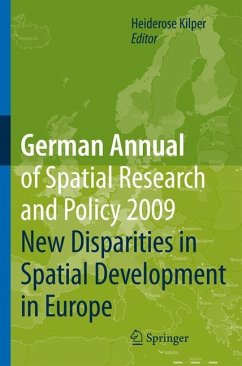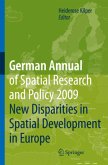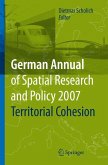Preface - Introduction 1 Heiderose Kilper "New Disparities in Spatial Development in Europe" - several topics are included in both the title and theme of the German Annual of Spatial Research and Policy for the Year 2009. We are frst of all concerned with the concept of spatial disparities, which has its roots in national spatial planning and spatial development policy. Regional development as interregional equalisation policy, for example, is well-anchored in the German constitution through fundamental legal standards and the division of powers among the respective federal states. The "establishment of uniform living conditions within the federal territory" and "securing the uniformity of living conditions beyond the borders of any single federal state" (Section 72 Paragraph 2 of German Basic Law [GG]) are expressly specifed as aims of government action in the constitution of the Federal Republic of Germany. With the major reform of Germany's fnancial system in 1969 and incorporation of the joint task "Improvement 1 of the Regional Economic Structure" in Section 91a of German Basic Law [GG] interventions on the part of the federal government and the wealthy federal states for the beneft of states and regions with less economic success were legitimised in constitutional terms as well. All of this would be inconceivable without the concept of spatial disparities.
Bitte wählen Sie Ihr Anliegen aus.
Rechnungen
Retourenschein anfordern
Bestellstatus
Storno









